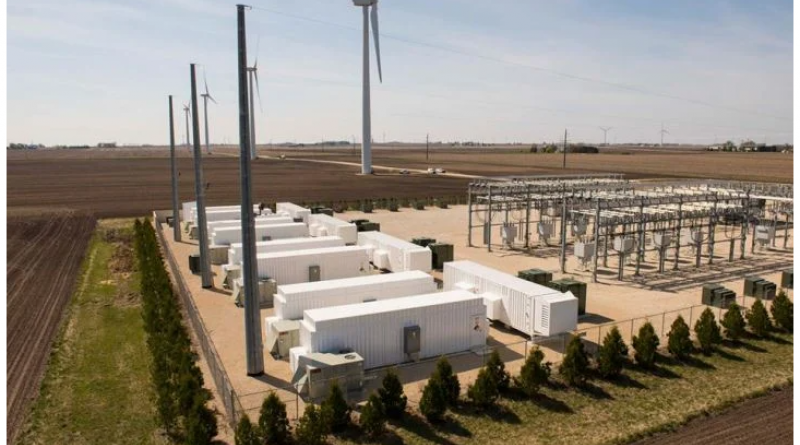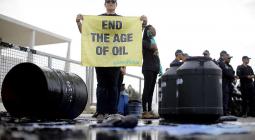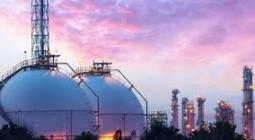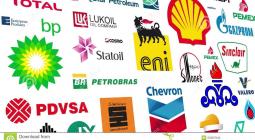NextEra Energy Looks to Spend $1B on Energy Storage in 2021.

“No drop-off, no slowdown”: NextEra’s well-oiled renewables development machine powers forward during the coronavirus pandemic.
Companies across the global renewable energy industry are anxiously assessing the negative impact of the coronavirus outbreak on their bottom line. Every company, it seems, except NextEra Energy.
NextEra, the leading U.S. renewables developer, reported its first-quarter financial results on Tuesday, saying that not only has its renewables development unit been unaffected by the COVID-19 pandemic, but it may actually benefit by being able to scoop up other projects that run into trouble.
NextEra expects to build around 5 gigawatts of renewables capacity this year, and it added another 1.6 gigawatts of wind, solar and storage to its pipeline during the first quarter. None of its 2020 projects are expected to be delayed.
The company also made a stunning, if not entirely surprising, prediction: It will spend $1 billion on battery projects next year. NextEra believes it will be the first company in the world to cross that threshold for energy storage investments in a single year.
That investment will include the 409-megawatt Manatee Energy Storage Center in Florida that NextEra announced last year, which will be powered by solar panels and replaces a pair of aging natural-gas-fired plants.
In addition to building renewables through its Energy Resources development arm, NextEra is adding wind, solar and batteries through its regulated utilities, Florida Power & Light and Gulf Power. FPL alone expects to add more than 10 gigawatts of solar capacity during the 2020s as Florida's solar market consolidates its position as one of the country's most important.
Energy Resources reported first-quarter adjusted earnings of $529 million, or $1.08 per share, up from $467 million, or $0.90 per share in the year-ago period.
Cheap natural gas is no match for renewables, NextEra says
Oil prices may have collapsed globally, but NextEra — the most valuable U.S. utility group by market capitalization — says renewables have not lost their competitive edge against natural-gas-fired power plants.
“Remember that as oil prices have come down, rig counts have come down in the Permian [Basin], which means there’s a lot less associated gas — which has actually helped natural-gas prices" from the perspective of renewables operators, John Ketchum, president and CEO of NextEra Energy Resources, said on an earnings call Tuesday. “We’ve seen a bit of an uptick [in natural-gas prices], especially recently.”
“When we’re out originating new renewables [deals], we really have not seen competition from gas-fired units for that reason,” Ketchum said. “They still remain in the $30-$40 per megawatt-hour range [on a levelized basis], versus wind, which is still in the teens in most parts of the country, and solar [is] in the $20-$30 range.”
“So it’s very, very competitive, looking at renewables versus gas-fired generation.”
Batteries, too, have become increasingly competitive with gas peaker plants, Ketchum said. “There’s a significant opportunity in almost every part of the country where batteries are now more economic than gas-fired peakers, even at today’s natural-gas prices.”
Potential M&A opportunity amid coronavirus outbreak
The renewables market has seen reports of supply-chain constraints, workforce shortages and slowed permitting processes. But Ketchum said NextEra has seen “no drop-off, no slowdown” in its own construction timelines or deal-making momentum. He credited the company's size and influence for that continuity at a time of crisis; NextEra is the single largest customer of many of its wind and solar equipment suppliers.
The one-year extension of the federal wind Production Tax Credit secured at the end of 2019 has given the onshore wind market a boost for the mid-decade period. During the first quarter, NextEra added 600 megawatts of wind deals to its pipeline for 2022 and afterward, Ketchum said.
“A lot of folks that own peakers [and] a lot of folks that own coal are very aggressively looking at renewables as an option, with [environmental, social, governance investment principles] as a tailwind.”
While Ketchum claimed that NextEra’s own renewables business has not hit any speed bumps as a result of the COVID-19 outbreak, he said smaller developers may be struggling both with supply-chain constraints and with securing finance as tax-equity investors’ appetites shrink.
“For those two reasons, it could create project [merger and acquisition] opportunities for us, where smaller developers need a rescue plan,” he said.
22 April 2020
gtm





